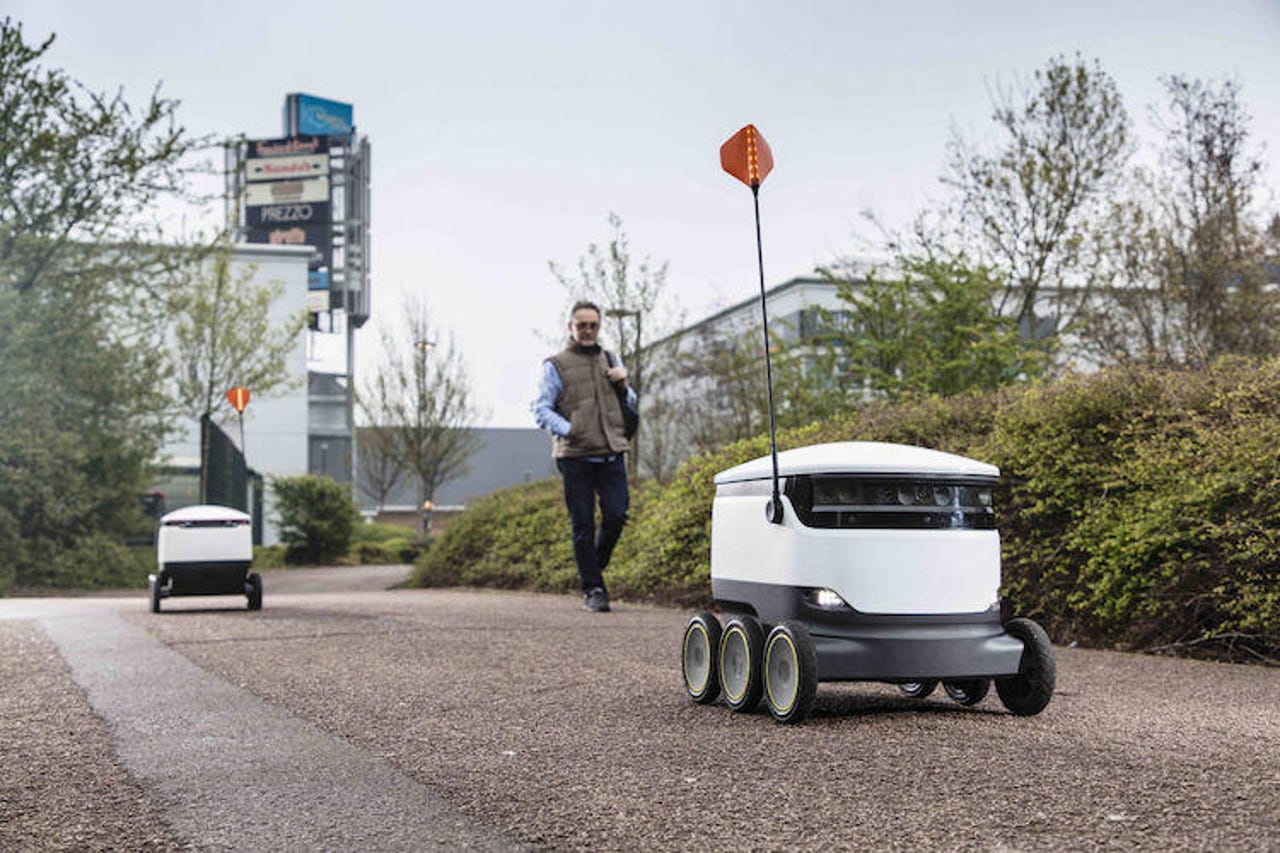Robot delivers the dough on college campuses


Back in May of last year I wrote that the pandemic would set the tone for a new autonomous food and grocery delivery paradigm. With a funding announcement and news of expansion from one of the dominant players in the space, that's very much coming to pass.
Starship Technologies, which makes a six-wheel delivery robot and has innovated a novel adoption strategy targeting college campuses and other controlled environments, just announced $17M in new funding (bringing the company's total funding to over $100M). Starship is also expanding its delivery services to two new campuses: UCLA and Bridgewater State University in Massachusetts.
"Completing one million deliveries is a milestone that everyone at Starship is celebrating," says Ahti Heinla, Co-founder and CEO of Starship Technologies. "We are delivering a fully commercial service operating 24-7 across five different countries now doing thousands of deliveries a day and millions of autonomous miles per year. This scale puts Starship on par with the biggest companies in the self-driving car market when it comes to miles travelled in the last year alone. We're proud to be offering a crucial service that is now becoming part of everyday life for millions of people."
The pandemic has created an opportunity across the delivery ecosystem as consumer demand shifts more rapidly than expected toward online orders. Autonomous delivery services, which use either autonomous mobile robots or self-driving vehicles to execute deliveries, have been shifting their sales pitch to meet the moment, emphasizing the benefits of contactless delivery and touting as-a-service options that extend delivery capabilities to mom & pops.
Starship is probably the best known of the delivery robot developers. In addition to offering delivery services on college campuses, where regulatory requirements are easier to navigate than many municipalities, the company recently rolled out its robot food delivery service in Fairfax City, VA, touting the access it's given residents to food and grocery delivery during the pandemic. The company has also offered free delivery for healthcare workers.
Meanwhile, Starship has aggressively expanded on college campuses, where it can strike deals with administrators to deploy its delivery services on behalf of on-campus dining options. The campuses can tout their cutting edge technology adoption while Starship gets a powerful testbed for its service and technology as it builds a regulatory case for wider rollout in cities around the world.
UCLA partnered with Starship to offer autonomous delivery from restaurants like Blaze Pizza, Bruin Buzz, Lu Valle, and Southern Lights. Bridgewater State University is providing delivery from campus restaurants including Starbucks Cafe and Bears Den.
The additional funding comes at a time of increasing interest in the autonomous delivery industry. Contactless delivery has proved to be one of the most reliable ways to protect vulnerable populations and enable social distancing during the COVID-19 pandemic, which is of particular importance on college campuses.
"Over the last few years there has been a growing interest for food deliveries on campus, and our new partnership with Starship Technologies has come at the perfect time," says Cindy Bolton, Associated Students UCLA Director of Food Operations. "The new service is an excellent alternative to traditional delivery, especially as we continue to confront the challenges of COVID-19. By using delivery robots, ASUCLA Restaurants can serve more essential workers and students on the UCLA campus."
The Starship service utilizes an iOS and Android app that enables users to choose food or drink items and then drop a pin where they want their delivery to be sent. An interactive map tracks the robot's position, and once it arrives customers unlock a secure compartment via the app.
It remains to be seen whether the Starship robots will pledge Greek or stay independent.